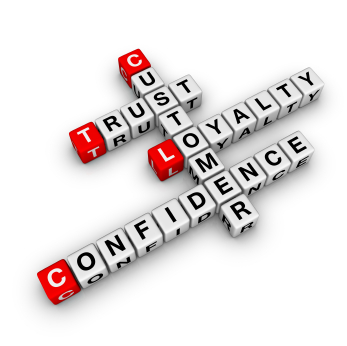Interested in a F.REE, easy-to-create marketing technique? One that is highly effective WHENEVER your prospects see it?
This is a technique you see every day when you’re online, when you’re watching home shopping channels on TV, and when you’re reading print ads. Every major marketer uses this to the maximum extent possible.
What is this amazingly effective, f.ree tool that all the big marketers use?
It’s TESTIMONIALS.
At this point, you may be thinking: Yeah, yeah, testimonials are nice to have, but they’re not really THAT important. WRONG!
Here’s why testimonials are CRITICAL for your business.

Testimonials get their power from social proof. Robert Cialdini is a major academic researcher on social proof, describing it as “…one important means that people use to decide what to believe or how to act in a situation is to look at what other people are believing or doing there….[This] can be used to stimulate a person’s compliance with a request by informing the person that many other individuals (the more, the better) are or have been complying with it.” p. 139 Influence: Science and Practice, Robert B. Cialdini, 2009, Pearson Education.
Here are three important points about social proof:
- It’s strongest under uncertainty: when we’re uncertain about what to do or the situation is ambiguous. Prospects are often uncertain – they want to use your product or service but they may simultaneously hesitate.
- It’s also strongest under similarity. We are more strongly influenced by people like us than by dissimilar strangers. So testimonials need to come from people “like us”.
- We’re really clueless about how strongly this affects our behavior. In fact, we genuinely believe we’re unaffected by it!
When you shop for a book at Amazon.com, they show you a lot of information about other customers’ buying choices. You’ll see “Customers Who Bought This Item Also Bought”, customer reviews and ratings of the book you’re considering, book lists that include the book you’re considering, and more.
I’m easily swayed by the section titled: “What Do Customers Ultimately Buy After Viewing This Item?” If more than 20% have bought some other book, I will ALWAYS check out that other book. Those other buyers must know something I don’t!
On Amazon.com, we are relying on the behavior of complete strangers to guide what we do.
Your customers and prospects are just the same.
They are happy to rely on the behavior of others to determine whether they want to hire/work with/buy from you.
And you should be happy to give them that information, in the form of testimonials.
You can describe the wonders of what you do until you’re blue in the face and some prospects will remain unconvinced. Or worse, they’ll think that you are saying those things with a self-serving intention.
When those same cynics read the glowing testimonials from people like them, they’re much more easily converted to believing it.
The closer the match between the prospect and the testimonial-giver, the more persuasive the effect.
Let’s say a prospect is considering your product or service. First, they want information from other people who have in fact used your product or service. Second, they prefer information from someone who is like them. If your prospect is retired and doesn’t use a computer very well, they’d rather see a testimonial from a retiree or technophobe than from a 20-something with a Blackberry.
When YOU are buying a car, whose opinion do you value more: the car salesperson or your neighbor who already owns the same model?
Remember, prospects want information and experiences from people who have been in their shoes.
And let me emphasize just how unconscious this is – often, people are not consciously thinking to themselves: “I’d really like to see a testimonial right here, from someone like me.” Nor are they thinking “I’m easily swayed by testimonials.” Just the opposite! We believe we’re making an independent decision that just right for us. Nonetheless, research (and your Amazon.com experience) shows the opposite.
What this means in your business:
1. ALWAYS provide prospects with information about what previous prospects-turned-clients have done.
2. Include testimonials in just about everything your write or speak that is publicly available. Wherever prospects are exposed to your business, you need to have testimonials there.
CALL TO ACTION
To fully leverage the power of testimonials, the first step is to consistently collect them. Part of your system for working with each client should include asking them for a testimonial, at a specific point during your work together.
Next, you want to create the habit of including testimonials in ALL your marketing material. They should appear on your web pages and in anything you write. They can also show up on your business cards, on phone calls, and more.
Does your marketing need a bigger boost than just testimonials can provide? If you hate marketing or sales, and you’re tired of not getting new customers, then I invite you into a complimentary call for me where we’ll discuss your goals, what’s getting in the way, and whether my coaching is a match for you. Simply email me at success@marcystahl.com and we’ll easily set up a complimentary private call.



